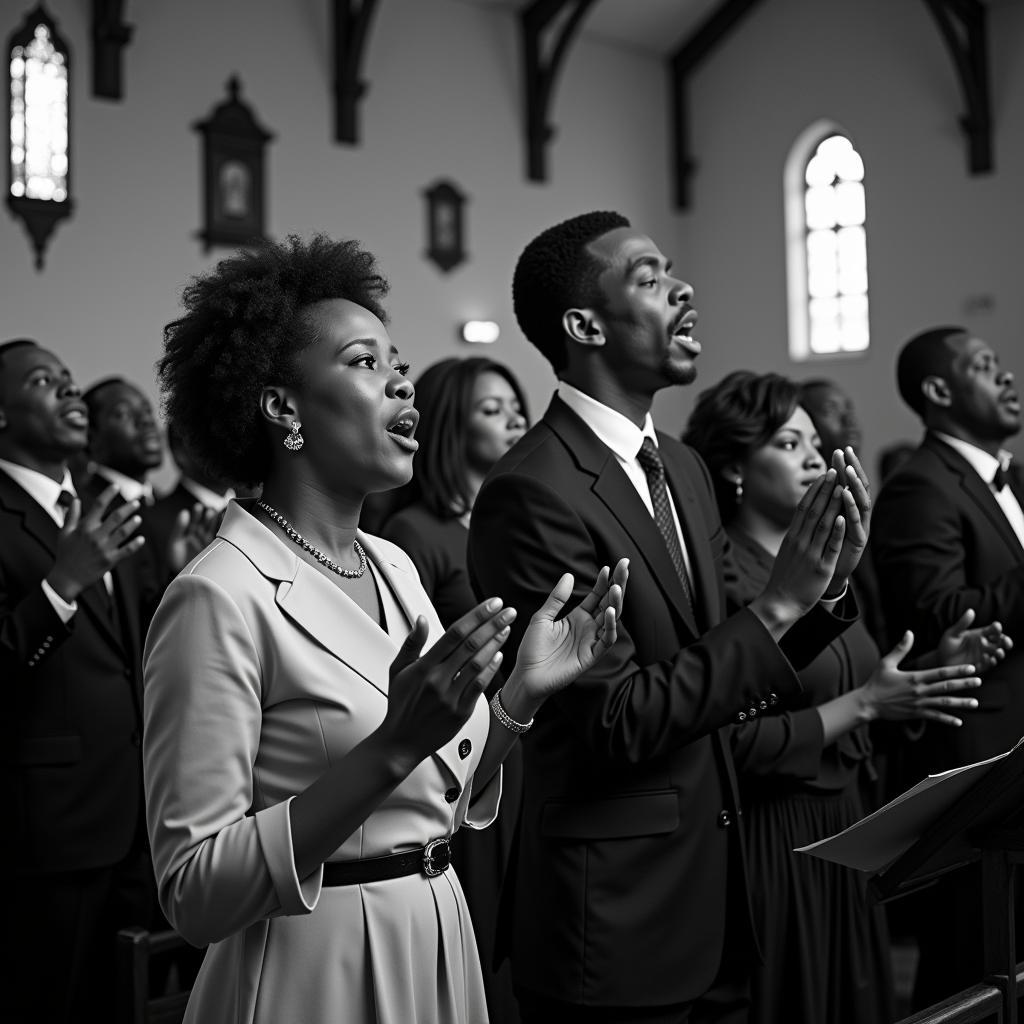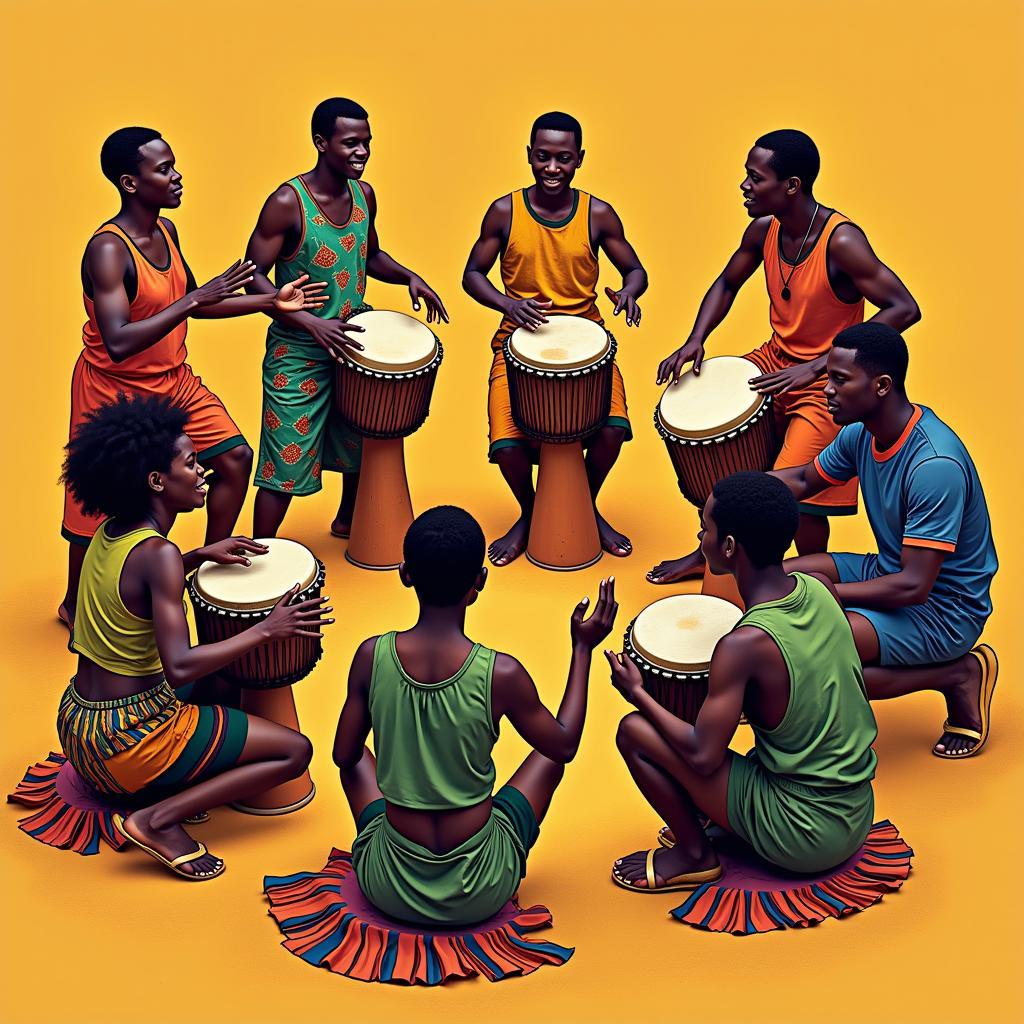African Influences on American Music
The rich tapestry of American music is woven with threads from many cultures, and African influences are among the most profound and enduring. From the rhythmic intricacies of jazz to the soulful melodies of blues and the infectious energy of rock and roll, African musical traditions have shaped the very essence of American musical expression. This article delves into the historical roots and stylistic elements that highlight the indelible mark of African Influences On American Music.
The Transatlantic Journey of Musical Traditions
The story begins with the tragic era of the transatlantic slave trade, which forcibly displaced millions of Africans to the Americas. Despite the horrors they endured, enslaved Africans carried with them their rich musical heritage. In the absence of traditional instruments, they used their bodies as percussive instruments, creating rhythmic patterns that echoed the music of their homelands.
Call and Response: A Dialogue in Sound
One of the most distinctive features of African music is the call and response pattern, where a lead vocalist improvises a phrase and the chorus answers with a refrain. This interactive and communal approach to music-making became deeply embedded in African American musical forms. In spirituals, work songs, and later in gospel, blues, and jazz, the call and response tradition fostered a sense of unity and shared experience.
 Call and Response Tradition
Call and Response Tradition
Rhythmic Complexity and Polyrhythms
African music is renowned for its rhythmic complexity, often employing polyrhythms, where multiple rhythms are played simultaneously. This layered and intricate rhythmic approach had a transformative effect on American music. The syncopated rhythms and improvisational nature of jazz, for example, can be directly traced back to African musical sensibilities.
 Polyrhythms in African Music
Polyrhythms in African Music
From Spirituals to Blues: Seeds of Innovation
The fusion of African musical elements with European musical forms led to the emergence of distinct African American musical genres. Spirituals, born out of the hardships of slavery, expressed religious faith and yearnings for freedom through powerful vocals and heartfelt lyrics. These spirituals laid the groundwork for the development of blues, a genre that gave voice to the joys and sorrows of everyday life.
The Blues: A Wellspring of Emotion
The blues, with its characteristic use of blue notes, bending pitches, and raw emotional delivery, emerged as a potent form of musical expression in the late 19th century. Blues musicians like Robert Johnson and Bessie Smith poured their souls into their music, singing about love, loss, hardship, and resilience. The blues became a cornerstone of American music, influencing countless artists across genres.
Jazz, Rock and Roll, and Beyond: Enduring Legacies
The influence of African musical traditions continued to reverberate through the 20th century, shaping the development of jazz, rock and roll, and countless other genres. Jazz, with its emphasis on improvisation, syncopation, and rhythmic interplay, drew heavily from African American musical roots.
Rock and Roll, which emerged in the 1950s, fused elements of blues, gospel, and country music. The energetic rhythms, amplified instrumentation, and passionate vocals of rock and roll owed a great debt to the African musical heritage.
A Legacy of Innovation and Cultural Fusion
From the soulful melodies of Motown to the funk grooves of James Brown and the hip-hop beats of contemporary artists, the impact of African music on American culture is undeniable. The story of African influences on American music is a testament to the power of cultural exchange and the enduring legacy of African musical traditions.
Conclusion
The journey of African musical influences through American musical history is a story of resilience, innovation, and the transformative power of cultural fusion. From the haunting melodies of spirituals to the electrifying energy of rock and roll, African music has left an indelible mark on the American soundscape, shaping its identity and enriching its cultural tapestry. As new generations of musicians continue to draw inspiration from these rich traditions, the vibrant legacy of African influences on American music will continue to evolve and inspire.

